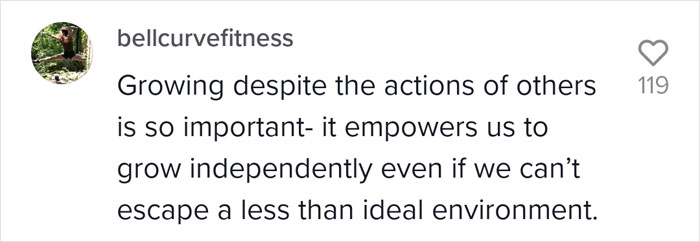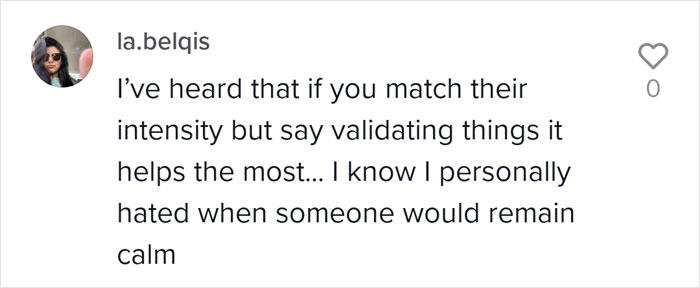6 Useful Tips On How To Deal With Angry People, According To Psychology Professor On TikTok
The variety of emotions people feel is one of the things that makes our species so unique. But they can complicate our lives, especially when we can’t fully control them or when we’re not completely aware of them.
One of the strongest emotions that is more difficult to control is anger. People say things that they wouldn’t normally and they can really hurt other people—both emotionally and physically. Controlling your anger is totally up to you, but what to do if someone is mad at you?
Anger professor Ryan Martin has created a series on his TikTok account talking about this problem. He gives some tips and directions on how we should behave when someone is mad at us.
More info: TikTok
Anger researcher Ryan Martin created a TikTok series talking about how to deal with angry people and gives some tips that might help

Image credits: angerprofessor
Ryan Martin is a professor of Psychology at the University of Wisconsin-Green Bay. He researches the expressions of anger and explores the reasons behind people getting angry so he can advise them how to use it in a more productive way.
Dr. Ryan Martin is also the host of the popular psychology podcast, Psychology and Stuff. Among other things, he has a TikTok account with 110k followers where he speaks about things related to anger, anger management and other interesting sides of human psychology.
The first thing to do is to ask yourself if you’ve done anything that might justify the person’s anger

Image credits: angerprofessor
He has quite a few series going on and one of them is all about how to deal with angry people. Currently it has six parts, with the first part having 732k views.
The professor kicks off the series with the most difficult part of dealing with angry people: when you ask yourself if the person that is mad at you is justified. He doesn’t mean that they are justified to yell at you or hurt you, and if the person is reacting in an inappropriate way, his advice would be to say “I made a mistake and I’ll fix it but you shouldn’t treat me that way.”
Try to de-escalate the situation by engaging in a non-complementary behavior, i.e. staying calm

Image credits: Frederick Dennstedt (not the actual photo)
In the second part, Dr. Ryan talks about complementary and non-complementary behavior. He claims that you should embrace the latter, meaning not to try and match the other person’s behavior but behave the opposite of them.
According to the professor, “If you stay calm and even lower your voice a little bit, they are likely to match that and lower their voice a little bit.” However, people that saw this video didn’t particularly agree with this as they had experiences when being calm just irritated the other person even more.
If someone is angry at you but socially withdraws, you should find another way to communicate that would work in that situation

Image credits: angerprofessor
The anger researcher continues the series with explaining what to do if someone is angry at you but they express it by stopping communication. This is a tricky situation as a person is entitled to their own space, but you still want to resolve the conflict.
In the video, Ryan describes how he would deal with such a person, “First thing I would say is find a way to communicate with them that serves your relationship: text, phone, in person, whatever. Say something to the effect of the following: ‘I believe you are angry with me. It seems you don’t want to talk about it. That’s OK but when you are, I am ready.’”
While in an argument, it would be wise not to generalize the other person’s behavior and to know when to disengage from an unproductive conversation

Image credits: Kurayba (not the actual photo)
Another important thing to have in mind is to not generalize the other person’s behavior as it would not be productive at the time of the argument. Ryan thinks it’s best to avoid saying things like “you always yell at me when you’re mad” or “why don’t you ever talk to me about this stuff?” because these behavior patterns should be discussed when everyone is calm and not in the heat of a fight.
It is also useful to know when to disengage. Maybe the argument got too intense and it would be best for your safety. Or if you see that this will not lead anywhere and it would be more productive to return to the matter with a clearer mind.
If you get in an argument over text, you should take your time to think and a good response would be to ask non-judgemental questions

Image credits: Nate Steiner (not the actual photo)
In the last part of the series, Ryan discusses a point that some of his viewers brought up: how to deal with angry messages? The professor is not a fan of answering with aggression, so because there is an option to not respond right away, you can think a bit about what you would like to say.
The psychologist believes that asking questions would be a good idea, like “Can you tell me more about why you’re mad?” or “How would you like to resolve this?”

Image credits: angerprofessor
Because all humans are different, it is pretty safe to assume that these tips wouldn’t work for everyone, but it’s worth a try if everything else fails. In general, Dr. Ryan is teaching us that we should be understanding and try to resolve the conflict by looking at it objectively and thinking before speaking.
You can watch the first part of the series in this video
@angerprofessorDealing with Angry People: Part 1. Ask yourself questions ##anger ##emotion ##selfhelp ##angermanagement ##psychology♬ original sound – Ryan Martin
Video credits: angerprofessor
What do you think of Dr. Ryan Martin’s tactics of dealing with angry people? Have you tried any of these approaches, and did they work to your advantage? Let’s have a discussion in the comment section!
Some people found the tips useful but others expressed their doubts









The post 6 Useful Tips On How To Deal With Angry People, According To Psychology Professor On TikTok first appeared on Bored Panda.

No comments